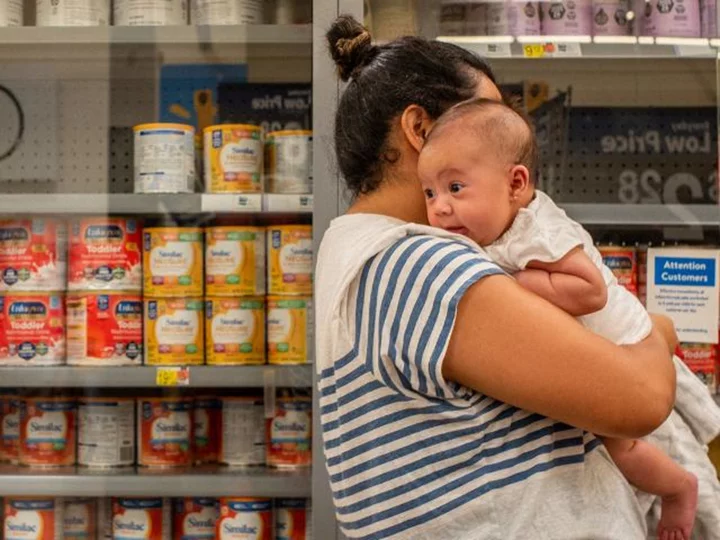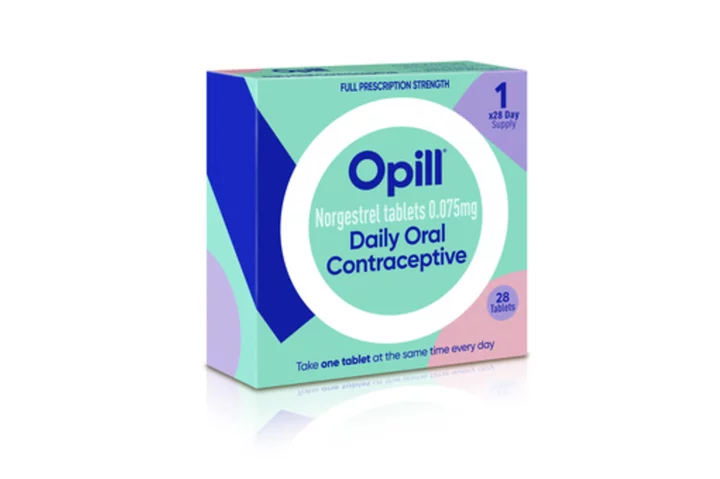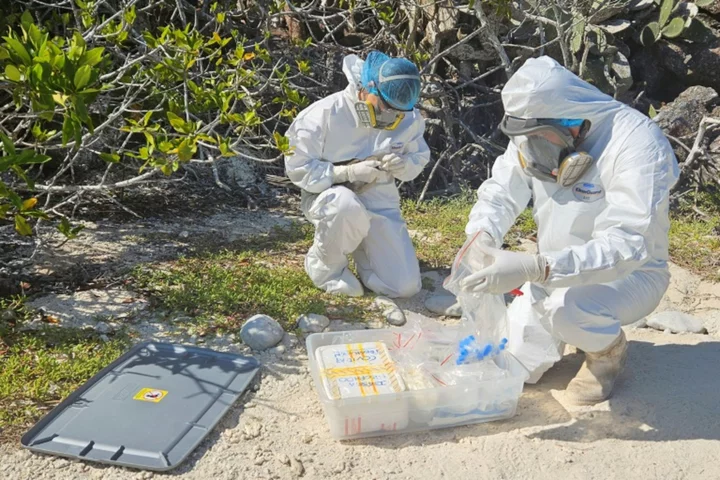In a rare moment of bipartisan agreement, lawmakers were highly critical of the US Food and Drug Administration's handling of the infant formula shortage Thursday.
The hearing of the US House Oversight and Accountability Subcommittee on Health Care and Financial Services was one of several Congress has held to better understand what contributed to the recent formula shortage and to understand how to prevent more problems down the road.
Rep. Lisa McClain, R-Michigan, said that the FDA has not been fully forthcoming with Congress and the public.
"Why was the FDA unprepared for the crisis?" she asked in her opening statement.
She said that the agency failed to prioritize food safety. "The FDA has not taken the action needed to prevent a similar crisis from happening again."
Rep. Katie Porter, D-California, said she agreed with McClain that another shortage could happen, "and that is a deadly serious problem."
"There is a lot of blame to go around," Porter added. "It's clear with today's witness selection that Republicans want to blame the FDA, and I'll level with you, I think some of that blame is well-placed. We've had two subsequent infant formula recalls in 2023 already, and we're still seeing that the FDA can make further improvements on internal processes, intervene in issues sooner and follow through with more inspections to prevent further contamination."
Three major manufacturers in the US control over 90% of the formula market, and that consolidation is a "serious concern" that "contributed significantly to shortages," according to Dr. Susan Mayne, director of the FDA's Center for Food Safety and Applied Nutrition, who testified Thursday.
A shortage that started in 2021 was exacerbated when the country's largest infant formula maker, Abbott Nutrition, recalled multiple products in mid-February 2022 and had to pause production at its plant in Sturgis, Michigan, after FDA inspectors found potentially dangerous bacteria.
The plant inspection was tied to an outbreak of Cronobacter sakazakii that had sickened at least four infants and killed two, although investigations did not find a genetic link between bacteria samples from the facility and bacteria found in the water and powder used to mix the formula that the infants had consumed.
Mayne testified that it was difficult to trace the cases and determine how big of a concern the outbreak was. The bacteria is a common pathogen in the environment "but one about which we have limited information."
The FDA has urged the US Centers for Disease Control and Prevention to make Cronobacter infection a notifiable disease -- meaning providers would be required to report cases to local or state public health officials -- so public health experts would be able to more quickly determine the source of any contamination.
In addition to the bacteria, an FDA inspection of the Sturgis plant found unsanitary conditions and several violations of food safety rules.
A whistleblower had alerted the FDA to alleged safety lapses at the plant in February 2021, months before Abbott's formula was recalled. The complaint suggested that the plant lacked proper cleaning practices and that workers falsified records and hid information from inspectors.
Like other FDA leaders who have been called before Congress, Mayne testified that she was not made aware of the complaint right away. She called it "a failure of escalation."
"I do wish I had been made aware of this particular whistleblower complaint, but just to reiterate, the complaint was acted upon," Mayne said. However, she noted, it was "less than ideal" how quickly there was an FDA inspection of the plant and how quickly the agency was able to act.
When the whistleblower made the complaint, there was no process within the FDA to escalate it. The process has since changed so that if a complaint meets certain criteria involving vulnerable populations, hospitalizations or deaths, leadership would be immediately informed. If a consumer complaint involves an infant death or hospitalization, it also immediately gets escalated to leadership.
To prevent future shortages, Mayne testified, it won't just be the FDA that needs to change. The industry should do more to adopt enhanced food safety measures to "deliver the safest possible" infant formula, she said.
The agency would also like better regulations. There have been been two infant formula recalls already in 2023, and in neither case was the manufacturer required to notify the FDA that it had found contamination before the formula left the plant.
The FDA has asked formula makers to inform the agency about positive tests, but such reporting is only voluntary. If it were mandatory, the FDA could know about problems in real time and could take action.
"Our food safety experts, our compliance experts can work with the manufacturers," Mayne said. In such a collaboration, they could quickly identify what product to focus on to prevent a shortage.
The FDA has taken recent steps to improve. In February, it announced that it is restructuring its food division to be more responsive and that it is creating an office of critical foods. The FDA is also hiring specialized infant formula inspection staff, Mayne said.
The infant formula supply is generally in good shape, she said, but there are still some distribution issues.
The in-stock rate is near 90%, even higher than pre-recall levels. But some rural areas are having a hard time getting all the formula they need.
Formula manufacturers have been producing more than is being purchased week after week to build up supply, Mayne said. The Biden administration has also worked to bring in formula from manufacturers overseas.
But another shortage is not out of the question, particularly if one of the country's main manufacturers is taken offline for any significant amount of time.
"We never want to have this happen again," Mayne said.
Lawmakers have proposed significant cuts, about 22%, to the FDA's budget for 2023. Mayne said that consumers and the industry would be "adversely affected" if the cuts go through.
"Broadly, across the FDA, I can say it would be devastating," she said, resulting in a loss of 32% of domestic inspections and 22% of foreign inspections. The cuts would also disproportionately affect its food programs, which get much of their funding from the budget, unlike divisions involving drugs that get money from user fees.
"We would be unable to do what I think American consumers expect us to do," Mayne said.









